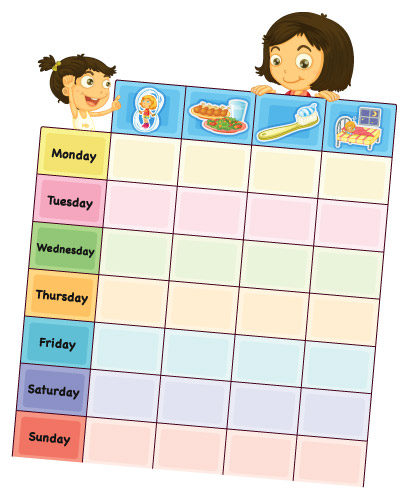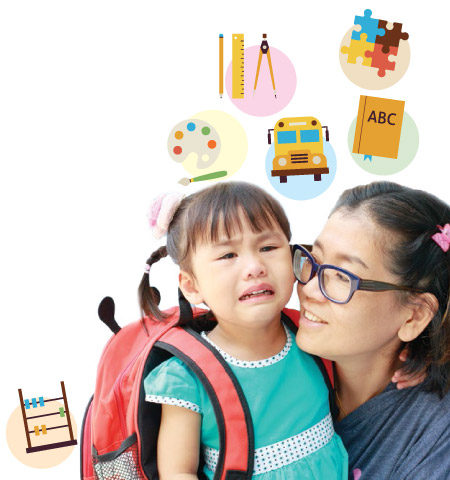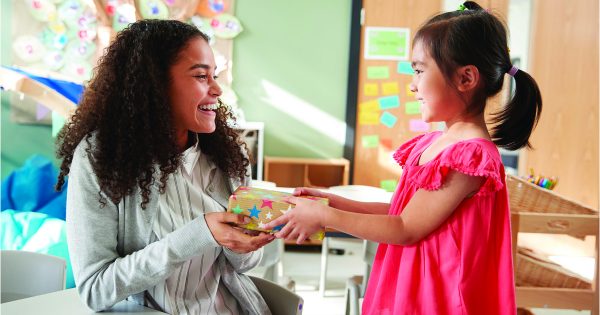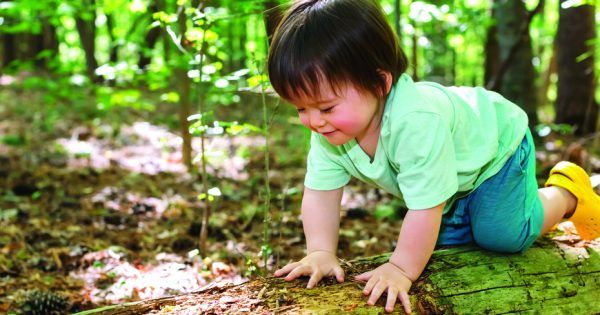School, it’s the next stage in your child’s life which will have a significant impact in moulding their interests, ability, identity, personality, social connections, etc. – the things that make them who they are. This part of their life is crucial as it provides the first glimpse of the real world which is full of unknowns, a scary notion for some but an exciting opportunity for growth nonetheless. Being able to cope and transition well to school will give your child the edge they need to excel in life up into adulthood.
Needless to say, the leap towards school requires mental, physical and social preparedness which can be taught and instilled pre-emptively at home starting as young as infancy. As parents, it is your duty to ensure that your child is prepped and equipped with these and other tools they will need to perform their best and reach their full potential.
Your Child’s Mental Readiness for School
Hour-long classes at a time, strange, new people and places, unfamiliar routines and rules, diverse learning concepts and responsibilities, risk of ridicule and rejection; for most first-time school goers, their fear comes from the thought of the unknown.
However, a child who is prepared mentally can better cope with these changes. The most important aspect for a child in being mentally prepared for school is parental support – which starts at home. Children of responsive and involved parents are more likely to perform better in school and it also influences a child’s ability to cope with failure and pressure; this in turn, affects their classroom behaviour.
Here are a few tips you can practice with your child to help him/her be mentally ready for school:

Set up a daily routine
Help children establish a regular routine to get ready for school. Don’t forget to also practice regular bedtime hours with enough sleep. Having a routine makes children cooperate better, reduces their anxiety, builds their confidence, and also teaches them how to be more independent and responsible.
Talk to your child about school
Discuss the positive things they can expect at school (i.e. make new friends, learn new things) and be open to listen to their stories. Answer all the questions they have about the school, teachers, etc. Reassure them that everything is going to be fine and that you will be there for them if anything happens. The more informed your child is about this new experience the better. Avoid making negative and/or counterproductive remarks about school meant to scare the child (i.e. you will be caned by the teacher for misbehaving or for not doing homework).
Tour the school
Visit the school together beforehand a few times. At orientation day (which most schools have these days), ask to be shown the places that are important to your child and their settling in process i.e. the toilets, where to eat, the principal’s office, the school stationery store, etc.
Listen to your child
Encourage them to take all concerns and needs to a grown-up and not be worried to speak up about anything. Let your child know that what she thinks and questions is valued. If possible, it would be good for you and your child to get acquainted with the class teacher before the school session starts.
Teach and reinforce positive behaviours and skills
Teaching children social skills, problem solving, and conflict resolution is conducive to good mental health. Many of these values can be taught by appointing certain age-appropriate responsibilities at home, unstructured play time activities and encouraging social participation. You can also ask questions and set up opportunities to provoke your child to think. Refrain from interrupting or belittling their concerns/problems/ideas/opinions. Show an authentic respect for their comments. Eventually, your child will have a stronger sense of self-worth and approach challenges with more confidence.

Be physically active and healthy
Healthy eating habits, regular exercise and adequate sleep protect kids from the stress of tough situations. Regular exercise also decreases negative emotions such as anxiety, anger, and depression.
Mental preparation can go a long way in helping your child to adjust. Alongside social and physical readiness (which my colleagues will explain further in this feature), you may give your child an added advantage over his/her friends and peers. Having sound fundamentals early will help pave the way for your child to have a more meaningful, enriching and productive school and overall life experience.







Comments